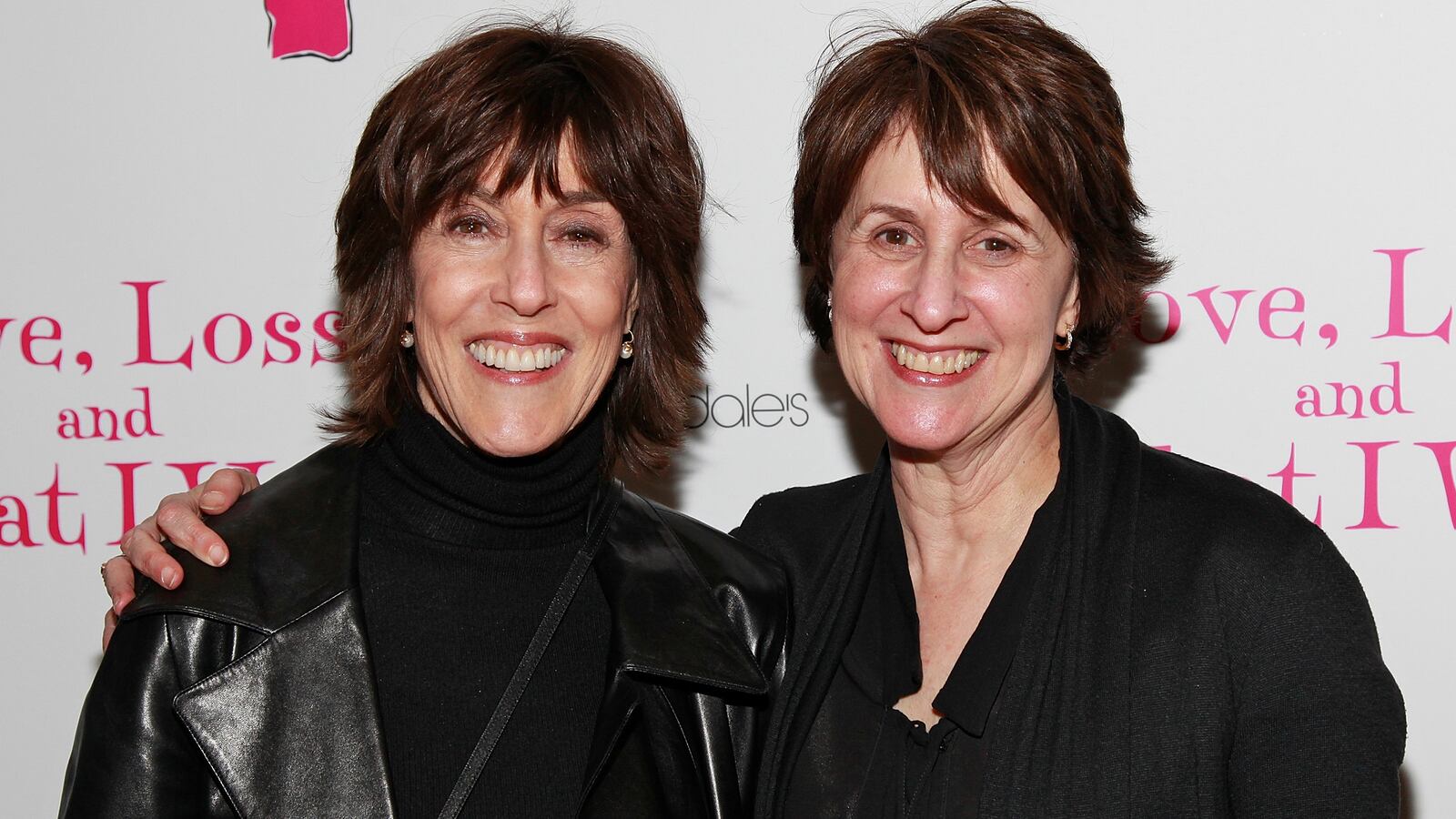“I practice Ephron,” Delia Ephron told me when asked about her religion.We were chatting over lemonade near NYC’s Union Square, and although it was our first time meeting in person, through a series of connections and years of thinking about this moment, I felt as if we knew each other.

Hailing from a family of serious literary types—most notably her sister, Nora Ephron—Delia Ephron has established herself as an author (How to Eat Like a Child), and screenwriter and producer in collaboration with her sister (You’ve Got Mail, Sleepless in Seattle). Her new (and first) memoir Sister, Mother, Husband, Daughter, began as a simple essay following Nora’s death. Finding writing therapeutic, Delia channeled her feelings of loss onto paper. As time progressed, her essays became a collection, and now, a first-hand look into the life of being an Ephron.
While politics and religion are typically avoided in conversation , Delia’s memoir touches on both in a quite humorous yet honest way.
Her essay “Am I Jewish Enough?,” highlights her joining The Jewish Book Council despite her self-admitted disconnect from religion. So I had to ask, “Has joining the JBC circuit greatened your spirituality or connection to Judaism?”
She laughed, explained no, and proceeded to tell me about the religion she was raised on: “I grew up completely in the culture, not the religion. I was raised in a family against religion in any way. I think I was raised in a sect of writers.” (The closest she got to a religious hymn was her father's recurring phrase: "That's a great line, write it down.")
And while she writes about the potential of having a religious experience in the same essay, she says, "How did I write a tree that exists in a place I had never been. How and why did I find it? There is no way I can wrap my brain around this. It requires a leap of faith. A leap of faith conflicts with my religion. It's not that I am 'not Jewish enough,' but I am too Ephron to ever acknowledge it."

The possibility of being "too Ephron" (if that is ever a possibility) is exactly what Delia's memoir encompasses—the wild ride that was growing up amongst a family of then-and-now literary geniuses; her seemingly dysfunctional yet brilliant parents, and her three sisters, all writers, that banded together in the midst of chaos.
We talk about our twenties—mine, which I'm living now, Delia's which she already lived and had much advice to give—being single (especially in New York), how her mother was way ahead of her time, teaching Delia and her sisters that "number one, you will have careers," and the most important theme that resonated through her memoir: collaborating.
"My parents were collaborators, I ended up collaborating with my sister," Ephron laughs. "Look how far I've come, I'm right back in my family mold."
But it's exactly that closeness that Ephron discovers is required for a successful collaboration, or as she explains in the essay "Collaboration," "collaboration, I discovered, is a kind of marriage."
Yet as much as she admired Nora, without diverging on her own literary path, it would have been nearly impossible to establish her own identity. And so, Delia approached her own successful writing career, while always maintaining the one of the most important parts of both her professional and personal lives—collaborating with her sister.
Between their work on romantic comedies like Sleepless in Seattle and You've Got Mail, to their last collaboration together, the play "Love, Loss, and What I Wore," Delia and Nora shared an inseparable bond that, when Nora died, Delia found herself lost.
And so come the most surprising facet of Delia's memoir, her choice to lead with the emotionally heaviest subject—Nora's death.
Aside from the playfulness that develops from relatable stories in typical Ephron fashion—like dealing with bad hair days in "#TheHairReport" or a look at her favorite downtown NYC patisseries in "Bakeries"–“On Losing Nora” highlights what most readers had anticipated—her account of losing her big sister, best friend, and her collaborator.
"She always said we shared half a brain," Ephron told me. Then she laughs. "Nora was also the bossiest person on the planet."
"On Losing Nora" conquers loss in typical Ephron fashion, balancing humor with seriousness in a way that only someone born from their family tree can really pull off. She recounts her sister's days in the hospital, Nora's brilliance with gift-giving, her own confusion with verb tenses following Nora's death ("I have three sisters, I had three sisters. I have two sisters. I have three sisters. Nora is a national treasure."), and the line-sharing that existed between them ("At Nora's memorial service, Martin Short quoted Nora: 'Hazelnuts are what's wrong with Europe.' It got a big laugh. It was mine.")
But, regardless of what Nora was, or is, her legacy as a writer, producer, collaborator, and big sister, will continue to remain a part of Delia's life: what it was, is, and will be.
"When the conversation turns to dogs, you know the party is five minutes from being over," Delia writes. "Maybe Nora would have borrowed that line. Well, she won't be doing that anymore, will she?"






